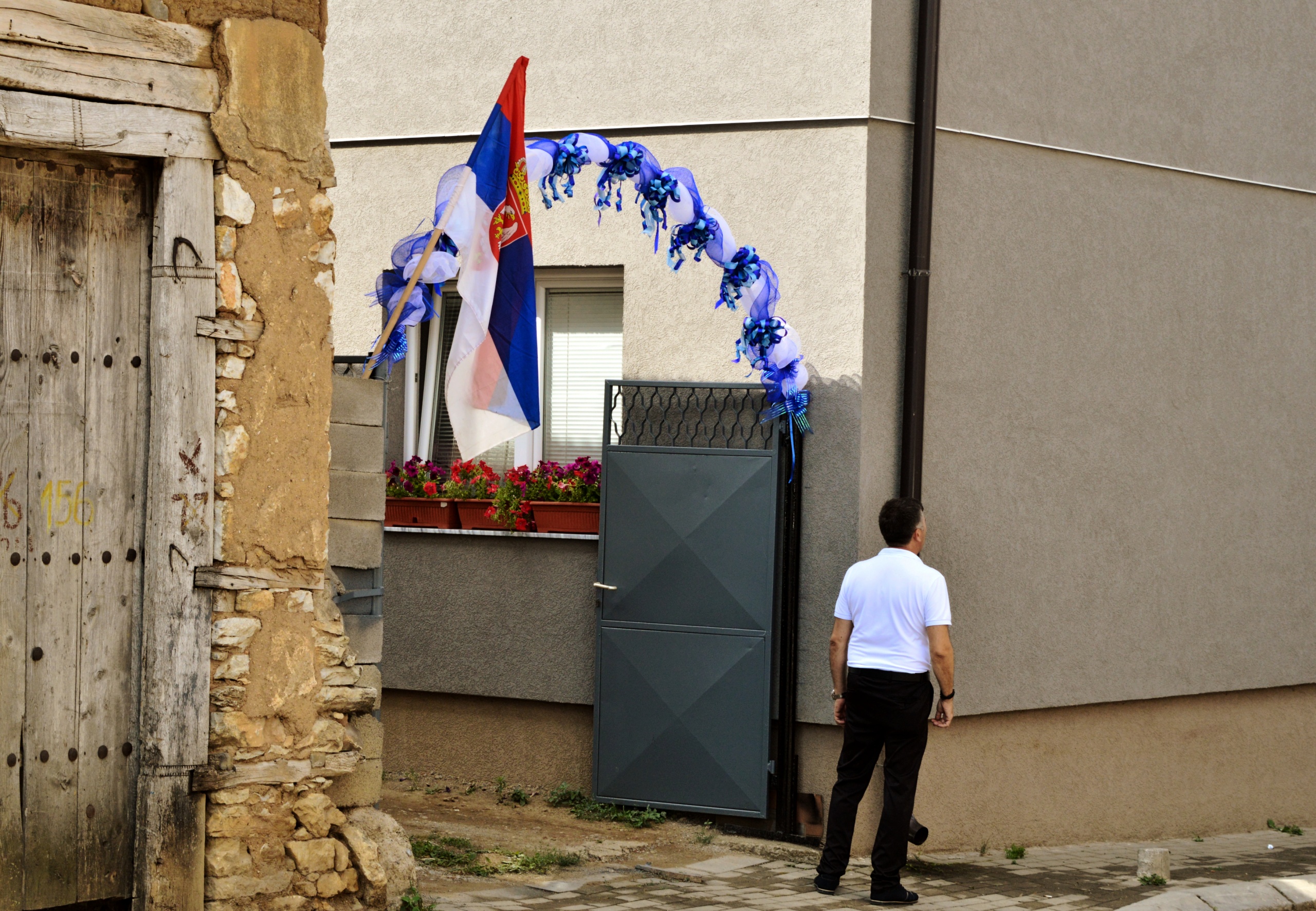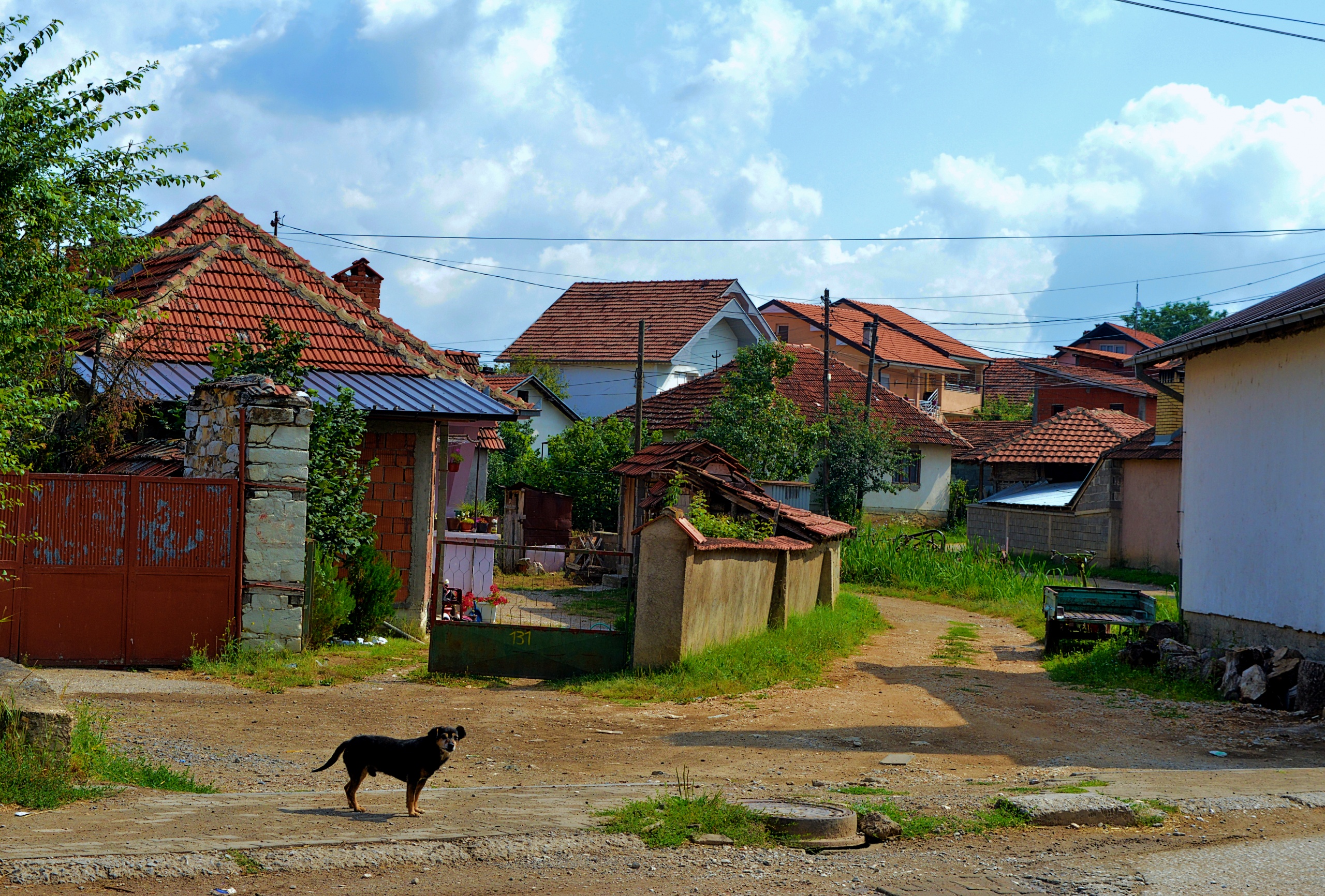(Re-)Othering the Village5 min read
When in 2008 the interim Kosovo government declared unilaterally its independence from Serbia, ethnic Serbs became de facto the biggest minority group in the youngest country of Europe. Many had fled for Serbia and Western Europe immediately after the breakup of the 1999 Kosovo war, while others largely clustered in North Kosovo. Since then, very few have returned to Kosovo. Despite the war and the uncertainty of its aftermath, smaller groups of other Serbs have continued to live in quarters and villages in the region that all Serbs refer to as the ‘South of the Ibar river’. Well-known as ‘enclaves’ from 1999 onward, these remote milieus are still on the agenda of the public policies and international community actors in the hope to succeed in a full-fledged ‘de-enclavisation’.
Nevertheless, Serbs find themselves trapped at the crossroad of a no longer ruling State, Serbia; subtly present and often patronising, and Kosovo, where their full integration remains at stake. Outside the Serb-majority urban clusters of North Kosovo, Serbs are more exposed to a series of contrasts that multiply outside the villages when it comes to speak with public or private institutions, to look for a job, to visit relatives or friends across Kosovo or to apply for a visa and travel abroad. An influx of everyday dilemmas at the grassroots level follows up. As they navigate between the mutually contradictory, yet competing, Serbia-backed parallel system and Kosovo’s institutional framework, citizenship, tax payment, schooling and even recreational activities cannot be taken for granted. Despite the fact that security issues are not anymore a major concern among ordinary Serbs in the rural fabric, what ‘one wants to do’ is often rethought as ‘how one should do it’.
The grinding level of poverty does not make their routine pause. Lighted candles cast shadow on religious paraphernalia. Typical symbols of the Serbian cultures barely stand out, almost unnoticed. Along the narrow streets, graffiti recalls a rhetoric that holds no traction among locals. The old generation knows what the latest Yugoslavia has meant for all people of Kosovo, but the youth carries the burden of the past without having experiences of it. The wartime memory is part of the rural landscape. For some, personal and communal identities are still deeply entangled in the past. For others, the latter should be left behind in the attempt to move forward. Both find themselves embroiled in a place unprecedented in history, one which, unless experienced, recollects nothing more than an existential limbo that survives thanks to what they hold dear: their village and its families, its surrounding vineyard hills, a future generation that will barely thrive.
Fear remains a big subject. Speaking a language barely heard outside the village, whose sound lets suspicion fall on those who speak it, is still a major concern. Some are eager to overcome such psychological liminality, while others still refrain from doing so. Studying at the village school means to comply with a curriculum adopted by Serbia, a country now far from them. Holding a passport issued by the State you are told to belong to, but that does not help avoiding travel restrictions or further stigmas at border checkpoints, is as puzzling as it is frustrating. Political dissatisfaction is rampant, yet politics is needed within the villages.
As a key to forgive and forget, local Serbs yield to compliance of a good neighbourliness. In the rural fabric, ethical conscience and rational mind have often protected them from vernacularism and stigmas of enmity. As a sort of microcosm, the Serbian villages in Central and South Kosovo show a different legacy of that that post-wartime hierarchies have imposed throughout the Kosovo society. Perhaps unnoticed to the wider public, or simply unanswered, aspiration and demands of Serb villagers have somehow managed to revive such knowingly unseen interethnic (co-)existence in the hope to tackle better the bitterness of their everyday existence .
Under the parapet of the media coverage, which reflects the tense political relations between Kosovo and Serbia, untapped civic and peace potentials seem to emerge from the margins of the society. Re-othering the village would thus mean nothing more than rethinking the societal roles of local actors in the absence of political will to deal with underdevelopment, marginalisation and economic stagnation. It would mean, in other words, empowering people’s aspirations and trusting them rather than continuing to blame and pathologise them under the cover of contested history and political impasses.
This visual short essay is part of an ongoing research in which I explore how Kosovo Serbs struggle daily to renegotiate and constrict their identity in their places of residence in the so-called ‘South of the Ibar river’. Combining field observation and in-depth interviews with locals, I took photos to visualise the relations between local Serbs and the surrounding landscape; between local Serbs and one’s village-based peers. In the attempt to explore unharvested interethnic coexistence between Serbs and Albanians, Central and South Kosovo’s rural areas display a different local routine than the one often assumed for North Kosovo. Neither barricades nor blockages along the way impede anyone to enter the villages where Serbs reside. Stereotypical pictures of ‘enclavisation’ fade away, leaving space to a sense of spatial disconnectedness with the nearest town. Locals have little command of the Albanian language, in the same way the majority of Albanians know little about those Albanians who go-it-alone in the villages for work or free time. These inconspicuous and random, yet present and important, intersubjective relations are slowly but surely repairing a sense of neighbourliness in rural Kosovo. Nothing to lose but the stereotypes they have been ascribed to.















